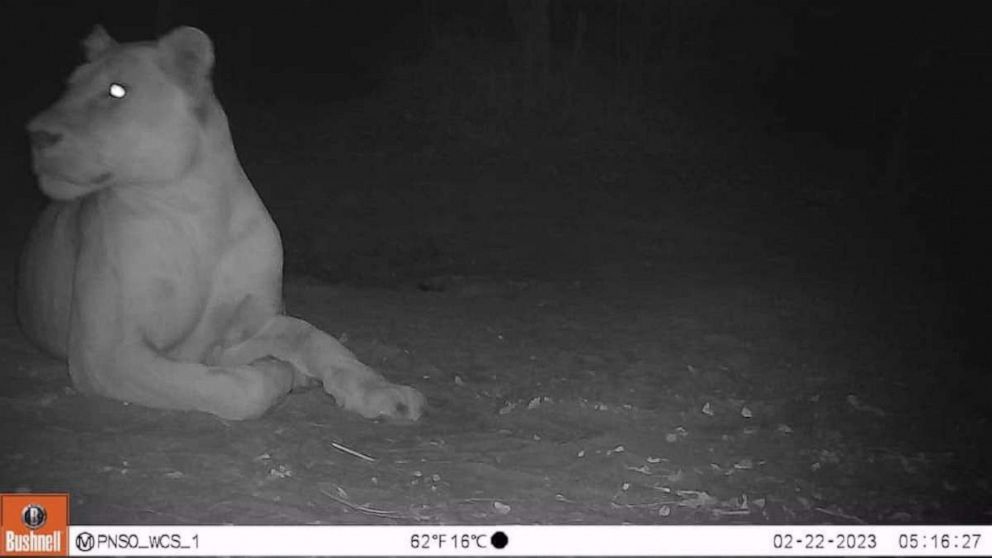'Extinct' lion spotted in Chad's Sena Oura National Park after almost 20 years
A lioness has been sighted in Chad's Sena Oura National Park for the first time in almost two decades, thanks to conservation efforts by the Chadian government and the Wildlife Conservation Society. Lions in West and Central Africa are critically endangered, but the nearby Bouba N'djida National Park is witnessing a resurgence in lion populations, offering hope for their recovery in the region.

Author: Morgan Winsor
LONDON -- A lion has been spotted in Chad's Sena Oura National Park for the first time in almost two decades.
A team of conservationists from the Chadian government and the New York City-based nonprofit Wildlife Conservation Society (WCS) released an image on Thursday showing what they described as "a beautiful lioness, in her prime and clearly in great health." The photo was taken on Feb. 22 by a camera trap in Chad's Sena Oura National Park, where lions haven't been seen since 2004, according to the WCS.
t was unclear from the image whether the lioness was alone. Unlike other big cat species, lions -- especially females -- typically live in family units called "prides."
"Our team believes there are more lions out there," WCS spokesperson Stephen Sautner told ABC News.Overall, lions are classified as "vulnerable" on the International Union for Conservation of Nature's Red List. Lions in West and Central Africa are considered "critically endangered," with populations declining by about 66% since the early 1990s. They are genetically distinct from the more robust lion populations in East and Southern Africa, according to the WCS.
Lions are technically considered extinct in Chad's Sena Oura National Park, a protected area of about 182,000 acres that's adjacent to Cameroon's much larger Bouba N'djida National Park, where the big cats "are now increasing and appear to be recolonizing parts of their former range including Sena Oura," according to the WCS.
"The region saw a period of ruthless, organized poaching more than a decade ago, but has since benefitted from a very strong commitment to conservation by the governments of both Cameroon and Chad," the WCS said in a press release. "This has produced better protection of the national parks and wildlife populations are now starting to recover."
What is Your Reaction?
 Like
0
Like
0
 Dislike
0
Dislike
0
 Love
0
Love
0
 Funny
0
Funny
0
 Angry
0
Angry
0
 Sad
0
Sad
0
 Wow
0
Wow
0













































































